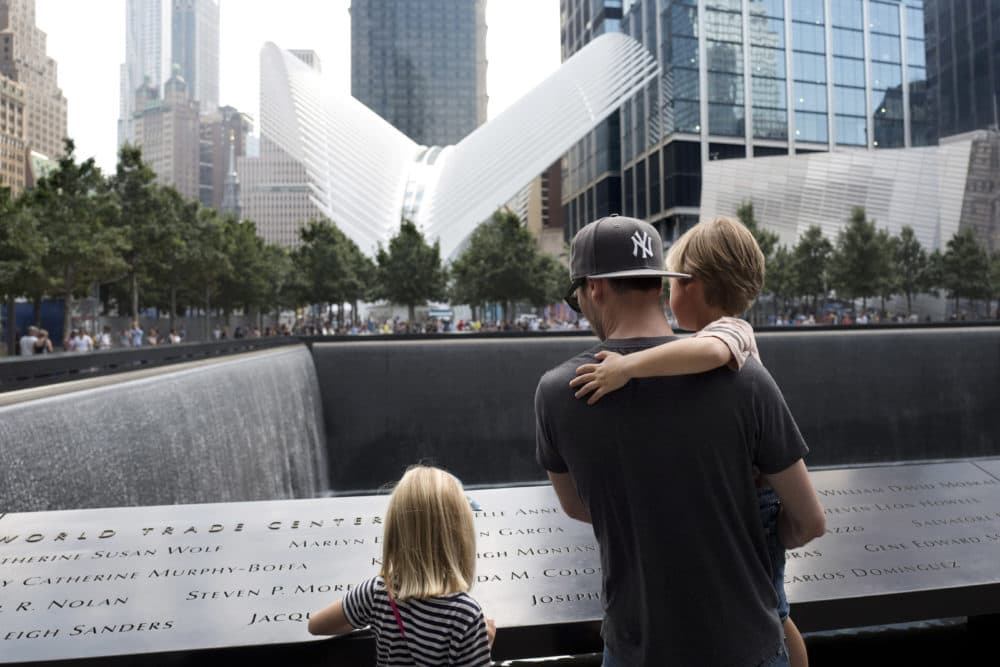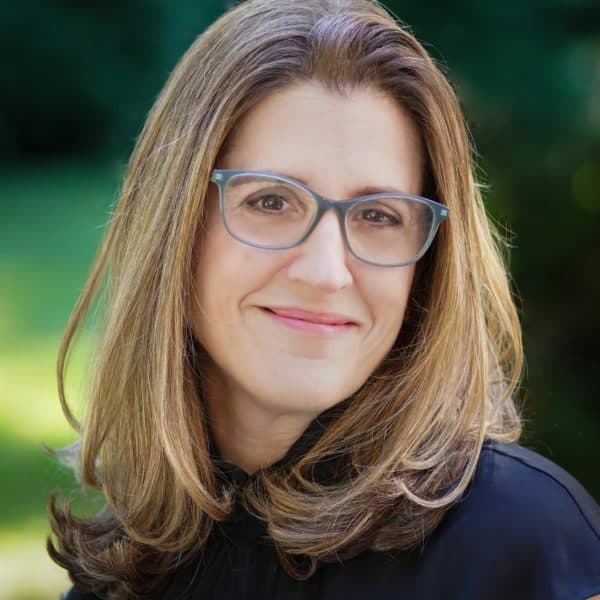Advertisement
Commentary
How We Talk To Our Children About Sept. 11

I was not yet a parent on 9/11. Like everyone of a certain age, I remember the day vividly. My husband drove me to the subway station on that pristine, warm Tuesday. I went to work in Boston and just after arriving at my office, got a call from a friend telling me about the airplanes that had flown into the World Trade Center buildings.
“Strange,” I thought, assuming that some incompetent or incapacitated pilots of small, empty planes were having an awfully bad morning. My coffee in one hand, I found the news on my computer and watched what had happened. I did not realize that my father had left Logan Airport and had headed for New York City right around the same time that the hijackers had left Logan, and that later, I would spend a breathless hour or so waiting to hear that his plane had been rerouted upstate.
I soon found myself on a crowded but silent train home, every face frozen in disoriented fear. Later that afternoon, I became possessed of a sudden desire to keep physically busy. I drove to a fabric store and bought large swatches of various patterns, and began to upholster our dining room chairs. I have never before or since then done anything similar. This is an unremarkable story of 9/11. I remain grateful that the horrors of the day did not strike closer to me.
The monstrosities of the world make themselves seen to our children before we are ready ...
My twins were born five years later and only learned about these horrors when they were in elementary school. My in-laws gave them a children’s book with illustrations of the planes crashing into the towers. I remember thinking, “Hold up — I’m not ready for this.” When children are very young, we teach them to be good. And then we have to reveal to them how humans can also be bad. Very bad. The monstrosities of the world make themselves seen to our children before we are ready, certainly before our children are ready.
As a parent, my first monster had been the Sandy Hook Elementary School shooting. My kids were playing with shaving cream and learning their letters in kindergarten at the time. They were 6, the same age as many of the victims. “This is possible?” I thought. “This level of awfulness?” I could not tell them about it and I have yet to discuss it with them at any length. I have not known how. At the time, I put all my hope in the government to enact better gun control laws and perhaps, on some level, I am still waiting for this to happen before broaching the topic. After all, they continue to attend school. The topic sits too close to them.
After Sandy Hook followed so much bad news: a huge swath of new information about the climate crisis, the revelations of widespread racist police brutality, the four years of intense political turmoil that began to ebb with President Biden’s election, and, of course, COVID. There have been and still are so many times when I wish that I could scoop up my kids and move us all to some safer place, somewhere off the grid and far away from bad news. Parenting is not for the weak these days. I wish I were stronger.
It’s been strange and sobering to watch 9/11 recede into history. Before my kids flipped through that picture book from their grandparents, I gave them a quick overview of the horrible day. I tried to use few words and remain general and stoic so I wouldn't frighten them. They were only about 7. “Bad guys took over some planes and flew into buildings,” I said, my heart in my throat. “Those buildings fell down.” Whenever the subject came up again that year and the next, I tentatively filled in more information. I said that a lot of people had died that day. I explained terrorism and hijacking. They were surprised, confused, and I could not do much to soothe them short of lying or obfuscating the facts.
With time, my kids learned far more on their own. They took in the bloody details, the enormity of the losses, the rise of Islamophobia, and whenever they mentioned these things, I went cold. Now they know something worse. Innocence does not seep away. It floods out in bursts, and to witness this in your children is to experience occasional emotional paralysis. At some point, of course, we are no longer the only or even the primary people to explain difficult things to our children. Teachers, friends, TV, the internet (that cursed and blessed thing) join your team, whether you like it or not. Frankly, when it comes to ushering in the monsters, I’ve become mostly glad for the help.
Innocence does not seep away. It floods out in bursts ...
On this 20th anniversary of 9/11, I plan to move us one step forward, beyond the bad guy narrative and the gory details, beyond the facts of the day to its relevance. I plan to talk to my kids about the Taliban and the war in Afghanistan, and our messy recent exit from that place, if they don’t already know these things. I want to talk to them about the choices that Presidents Bush and Biden have made. I don’t plan on abbreviating or couching anything anymore, and to be honest, this is liberating. There is real joy, if at times bittersweet, in watching your kids grow older and come to understand and care about the world on their own terms.
I find myself coming full-circle and trying to teach them again how to be good, if they will let me. On 9/11, we may visit the memorial at the Boston Public Garden. They have seen me advocate at the State House for gun control, attend the Women’s March, write postcards to voters across the country, mouth off (to their horror) to people about the importance of vaccinations and masking. I want them to see that I care about this country and its people, its children. It seems more important than ever.
